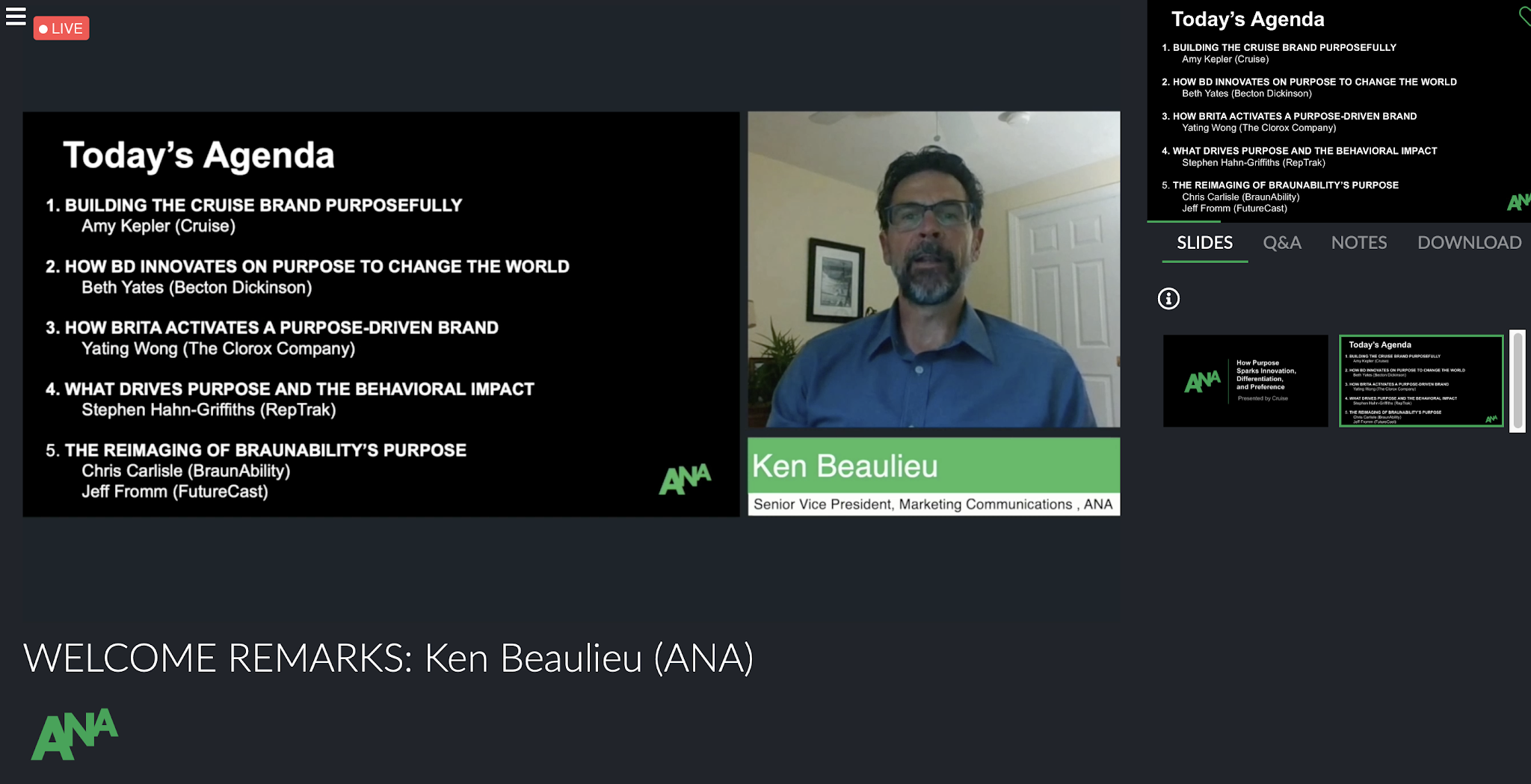When Technology Meets Creativity: 4A’s CreateTech Conference 2019 Recap | Yimin Wu
Anyone, in any creative enterprise, ultimately needs to be a creative technologist— whether a strategist, developer, executive.This might be the most impressive words I’ve heard in 4A’s CreateTech Conference, which was made by 4A’s President + CEO Marla Kaplowitz in the Opening Remarks.
4A’s CreateTech Conference is a forum for technologists and creatives working in advertising. It made me rethink about the relationship between technology and creativity.
As a grad student from Creative Track, we have been focusing a lot on how to come up with a big idea, which is considered as the origin of a good campaign. There’s nothing wrong. When we got an exciting great idea and was trying to put it on ground making executions, most of time we still limit ourselves to consider the more traditional way, like print ads, video, podcast, etc, because they seem more rational and executable. There’s nothing wrong neither, at least so far.
But did we notice the fact that lots of changes are happening on the advertising world rapidly, from consumer behavior, media habits, to marketing system, because of the emerging technology, especially the artificial intelligence? It urges us have to take on the new challenge to discover more possibilities in this industry.
In my previous blog, I already talked about how AI is changing marketing and advertising, which I considered as a new trend on the ads world during Ads Week 2018. After attending this forum, I further confirmed my passion for being a creative technologist. Creative technologies define tomorrow’s advertising world — and stand at the forefront.
During this conference, I had chance to meet up with many agency professionals, producers, technologists, strategists to learn about their fearless programming with AI, and had chance to take a VR experience - storytelling about Latvian punk rock, which was far more than a wow.
The opening keynote was made by Dr. Kumar Mehta, founder of Bridges Insight and author of The Innovation Biome. He talked about “the innovator’s dilemma” and how to build an experiential innovation capability. He introduced his Experience Delta model, presented the way in identifying the current experience journey and developing a new experience journey. He stated that
The experience delta should become the currency for deterring the value of an innovation.It’s inspirational but a little bit theoretical for me.
In the panel session “Change Management: Innovation in Action”, industry leaders Michael Lebowitz, Melissa Lentz, Philip Rackin were invited to join the discussion moderated by Tim Leake. They discussed how they manage change across clients, companies, and teams, and in their own lives. When Moderator Tim asked them to name the barriers to change for larger organizations. They answered with “Three-month thinking and misaligned incentives,” (by Michael Lebowitz, CEO of Big Spaceship), “Identity crisis and ambiguity,” (by Melissa Lentz, CEO of MAGNET Global Network) and “Lack of intent and purpose, and ambiguity,” (by Philip Rackin, VP of Business Transformation at R/GA). The group then explored how to overcome such obstacles. I totally agreed with “Ambiguity” might be the most obstacle for larger corporate. Sometimes speakers are purposely ambiguous in their answer to avoid possible risk of being accused of lying. It might be quite common in large organizations. But this is not a positive contribution in effective communication. It may also lower down the efficiency in decision making.
The most practical session for me was the workshop “A Voice in the Wilderness: Getting Hands-On with Voice Technology” led by Layne Harris, Vice President and Head of Innovation Technology from 360i. He introduced his story about how to become a creative technologist and the tools he used. Voice technology was one of them. Many marketers knew about Alexa, but didn’t know how to use it to boost their business. Without knowing the technology behind this voice service that swept the globe, it’s rarely possible to make good use of it. Layne helped us understand the intelligence assistant ecosystem and presented how to build an Alexa fact skill through the Amazon Alexa Developer Console & Amazon Web Services (AWS). It might take time to digest this knowledge but it’s worthy the time, definitely. It sparked my interest in AWS and provided me a wider perspective on how to use the voice service and technology effectively.
Technology and creativity, making and thinking, are themes of this conference. It left us an endless room to explore in the advertising and marketing world. When technology meets creativity, how are you going to take on this challenge? Are you ready?



